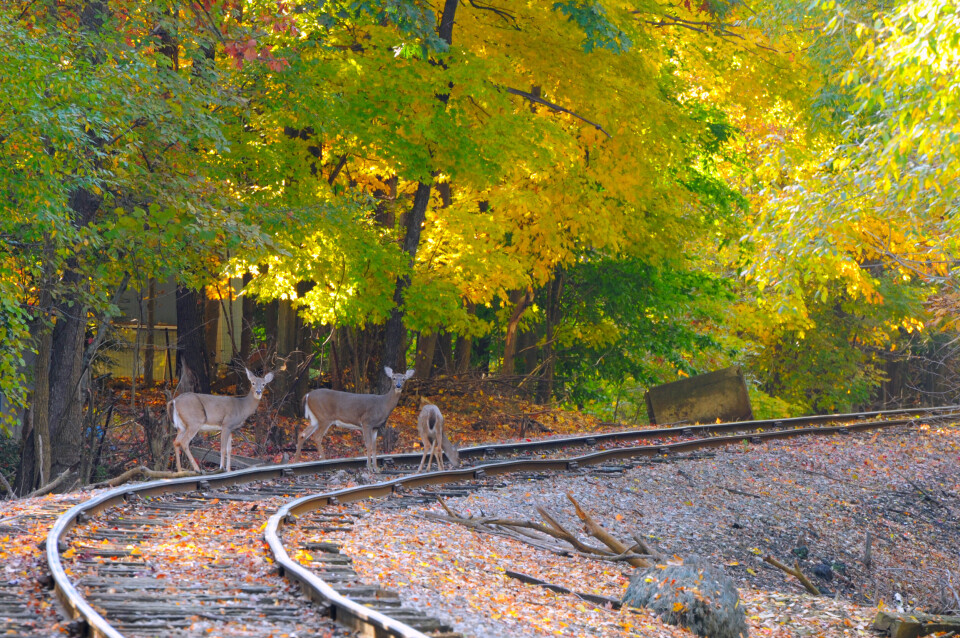-
Why your car insurance in France is expected to increase this year
Premiums are forecast to rise by four to six percent in 2026
-
Two Britons killed in avalanche in French Alps were with an instructor
French skier also died in the disaster at Val d’Isère on Friday February 13
-
British Airways launches bargain £2 flights to France (but there’s a catch)
The flights are only available to members of the airline’s Avios scheme who are redeeming loyalty points
French railway fits innovative alarm system to stop wildlife accidents
The new device will be used in Burgundy where collisions with wildlife on the tracks happen regularly

The local train network in the Burgundy area frequently has to lay up trains for repair after collisions with wildlife on its 3,000km of track. So the invention of an alarm system will not only save wildlife but also cut delays to services.
SNCF Réseau unveiled the device on Thursday (February 9) to improve safety on the tracks and for the comfort of passengers in the rural Bourgogne-Franche-Comté area where a TER train collides with wildlife on average every three days, mostly with deer and wild boar.
The invention will help improve the regularity of trains and reduce maintenance costs.
150 collisions a year and 400 hours of delay
In 2022, there were 150 collisions with wildlife, which generated 400 hours of delay. SNCF Réseau says damage caused by these collisions is in the region of €1.2m in repairs, and an average of six days of immobilisation for a train.
The possible solution came recently, when an employee was detailed to look into this, investigating the places where animals tend to cross the lines. Its cost is estimated at €170,000.
That employee was Gérard Lhomme, a wildlife regulator and domestic wildlife prevention officer for the SNCF Réseau. His role is to identify wildlife crossing points and to set up scare alarms, or directly intervene should he see animals on his rounds.
Scare factor
The principle of the device is simple: a sensor detects the passage of the train and triggers sound projectors over a distance of 1.5 km, spaced 300 metres apart, which will scare off animals.
"I make my rounds and where I can see animal tracks I either put in place the device or I do the scaring myself if the animals look like they are going to cross the track. I receive reports of animals from colleagues, I also have photo traps for tracking animals and that allow me to intervene if necessary."
The main nuisance remains wild boars: "For the past two and a half years, we have had a big increase in boar populations, and they are the most disturbing."
They have also been working with local hunters since 2018. SNCF Réseau and the Fédération Régionale des Chasseurs have been studying possible actions to be implemented to limit collisions.
Read also: Oiseaux de France goes digital to keep tabs on declining species
Thermal camera
The device has been installed in Thorey-en-Plaine, on a 3.6 km sector, where the SNCF tracks cross forest areas, exposed to wild boar. Despite the installation of electric fences to stop the animals and contain them in the forest, the wild boars cross the fences and end up on the tracks.
The company BestWarden, specialists in animal scaring at airports and military sites, designed the system. Once the trains are detected, a radio signal triggers the sound beacons which will emit a noise 30 seconds before the train passes, adapted to the season, so that the wildlife does not approach the tracks when the train passes.
The animals associate the noise with the notion of danger, the beacons are autonomous and powered by solar panels.
A thermal camera was also added to the device, which allows it to both take readings during the passage of trains, and to see the effectiveness of the device. It can also be used to trigger the sound alert.
Read also
Animal found dead next to road near Marseille confirmed to be a wolf
Found a distressed bird or animal in France? Here’s what not to do
























